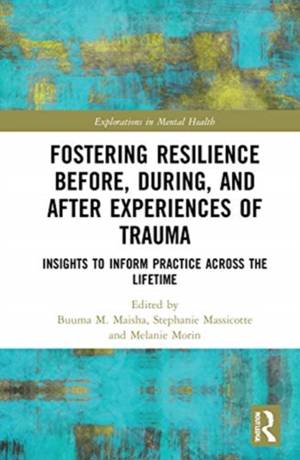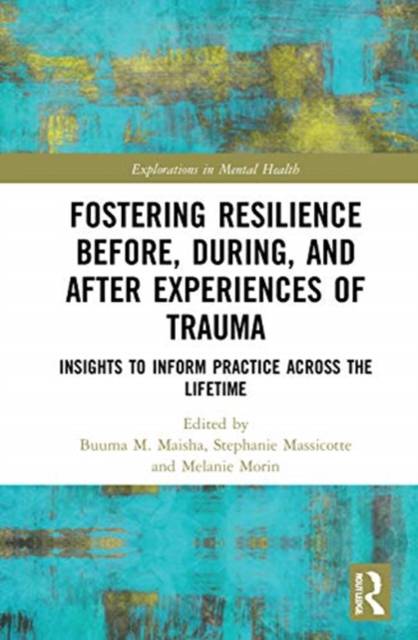
- Retrait gratuit dans votre magasin Club
- 7.000.000 titres dans notre catalogue
- Payer en toute sécurité
- Toujours un magasin près de chez vous
- Retrait gratuit dans votre magasin Club
- 7.000.0000 titres dans notre catalogue
- Payer en toute sécurité
- Toujours un magasin près de chez vous
Fostering Resilience Before, During, and After Experiences of Trauma
Insights to Inform Practice Across the Lifetime
Description
This edited volume recognizes that resilience, and the most effective means of harnessing it, differ across individuals, contexts and time. Presenting chapters written by a range of scholars and clinicians, the book highlights effective evidence-based approaches to nurturing resilience, before, during and after a traumatic experience or event.
By identifying distinct therapeutic tools which can be used effectively to meet the particular needs and limitations associated with different age groups, clients and types of experience, the volume addresses specific challenges and benefits of nurturing resilience and informs best practice as well as self-care. Approaches explored in the volume include the use of group activities to teach resilience to children, the role of sense-making for victims of sex trafficking, and the ways in which identity and spirituality can be used to help young and older adults in the face of pain and bereavement. Chapters also draw on the lived experiences of those who have engaged in a personal or guided journey towards finding new meaning and achieving posttraumatic growth following experiences of trauma.
The rich variety of approaches offered here will be of interest to clinicians, counsellors, scholars and researchers involved in the practice and study of building resilience, as well as trauma studies, psychology and mental health more broadly. The personal and practice-based real-life stories in this volume will also resonate with individuals, family and community members facing adversity.
Spécifications
Parties prenantes
- Editeur:
Contenu
- Nombre de pages :
- 198
- Langue:
- Anglais
- Collection :
Caractéristiques
- EAN:
- 9780367702861
- Date de parution :
- 10-05-21
- Format:
- Livre relié
- Format numérique:
- Genaaid
- Dimensions :
- 152 mm x 229 mm
- Poids :
- 449 g

Les avis
Nous publions uniquement les avis qui respectent les conditions requises. Consultez nos conditions pour les avis.





